References
Websites
Beekeeping
Beesource brings the experience of hundreds of beekeepers to focus on your questions. If you are starting out, this is an interesting site. Be careful of some of the “experts” who spend more time online than they do in their apiary. Worth making a donation. We need to keep Barry and his friends around!
Michael Bush is one of the most knowledgeable beekeepers in the world. His website is a constant reference for us.
Ross Conrad wrote the book on organic techniques for beekeeping. Literally…(see books)
My local club and a good resource for local info and results. Join your club, take a class, and reap the benefits of speaking with those who know beekeeping in your area.
The Hive and the Honeybee. Various books and periodicals from the E.F. Phillips Beekeeping Collection at Cornell. One of the best reference sources for material written in the late 1800s – early 1900s.
Local Conservation and Agriculture
Cheshire County Conservation District is a local non-profit organization dedicated to conserving the natural and agricultural habitat of our community. By working with farmers, landowners and other community organizations, the CCCD helps promote local agriculture and maintain the wildlife health, natural resources, and beauty of the Monadnock Region. They are a treasure trove of valuable information for those interested in soil health and proper land stewardship. A relatively unknown gem that is doing great work right here in our county.
University of New Hampshire Cooperative Extension. If you have a question about planting fruit trees or bushes, what’s eating your tomatoes, etc. check out the UNH Extension Service!
The Monadnock Conservancy is a land trust for southwestern New Hampshire. Their mission is to work with communities and landowners to conserve the natural resources, wild and working lands, rural character and scenic beauty of the Monadnock region. Our future generations will thank these folks for making sure the scenic and natural wonder of our area are preserved for their health, recreation, and continued enjoyment.
When it comes to planting and managing organic orchards, Michael Phillips wrote the book. He really did…it’s called The Holistic Orchard: Growing Tree Fruits and Berries the Biological Way. Michael lives with his family in Groveton, NH so I believe there is hope for our orchard, too!
The Xerces Society for Invertebrate Conservation is one of the leading proponents for developing native pollinator habitat in the US. Over the past three decades, they have protected hundreds of endangered species and their habitats, produced ground-breaking publications on insect conservation, trained thousands of farmers and land managers to protect and manage habitat, and raised awareness about the invertebrates living in our forests, prairies, deserts, and oceans.
The Northeast Organic Farming Association of New Hampshire actively promotes regenerative, ecologically sound gardening, farming and land care practices for healthy communities, helping people build local, sustainable, healthy food systems.
The Small and Beginning Farmers of New Hampshire is a farmer-to-farmer network with the goals of connecting farmers and the community, sharing ideas and information, and accessing technical assistance and agricultural education. Their collaborative efforts help small and beginner farmers achieve their goals, strengthen their communities, boost the agricultural industry and economy, and improve the quality of life in New Hampshire.
Favorite Books
The Backyard Beekeeper, Kim Flottum
A great beginner’s guide to beekeeping. Lots of pictures, well written and an enjoyable read by the editor of BeeCulture Magazine.
The Buzz about Bees: Biology of a Superorganism, Jürgen Tautz, H.R. Heilmann, and D.C. Sandeman
A phenomenally well-illustrated book that considers a colony of bees as a single organism. The pictures alone are worth the price but this scientific book is an excellent read.
Increase Essentials, Lawrence John Connor
If you want to increase the size of your apiary, this is the book for you. How to overwinter nucs, how to successfully do a split and in-depth examples of how others are growing their apiaries. A quick read that I have gone back to read several times.
Natural Beekeeping – Organic Approaches to Modern Apiculture
Written by Ross Conrad, this is the book that started us on our way with holistic beekeeping. An often used reference to how to treat your bees right.
The Holistic Orchard: Growing Tree Fruits and Berries the Biological Way – Michael Phillips
This is the treatise we are using as we develop our own orchard. I haven’t read as much information on soil ecology since college.
Purchase Bees
As we are a small apiary, we do not always have bees, queens or honey products available throughout the season. If we do have honey, nucs or queens for sale we will post them on this website.
Meanwhile, we suggest you support your local farmer by joining a CSA (Community Supported Agriculture). Local food is fresher, tastier, and healthier for you as it still maintains vital nutrients. It also helps ensure a healthy agricultural component remains in your community and maintains ties to our agricultural past. So go ahead, eat local and stay healthy!
